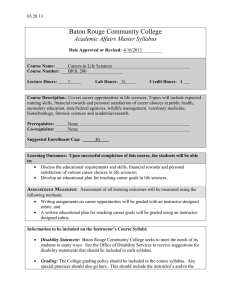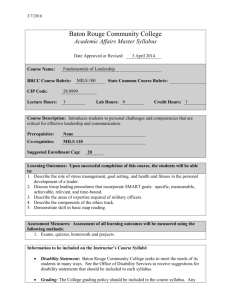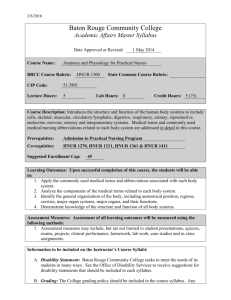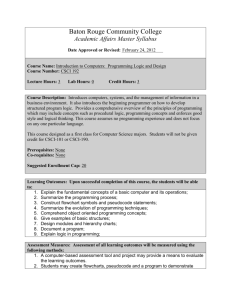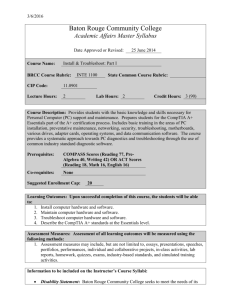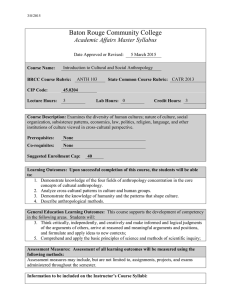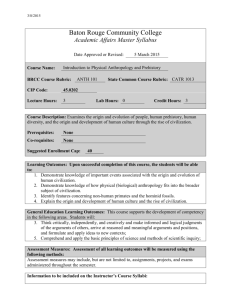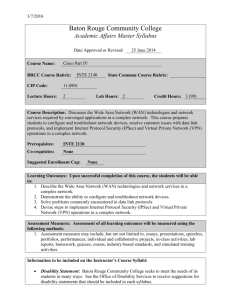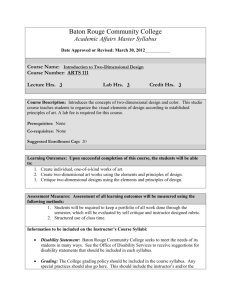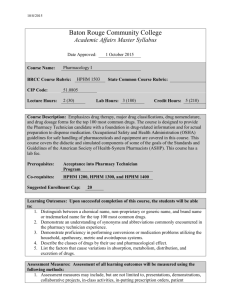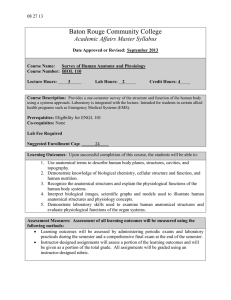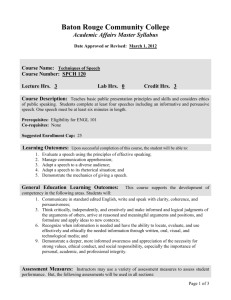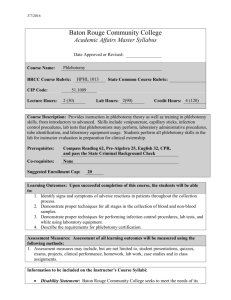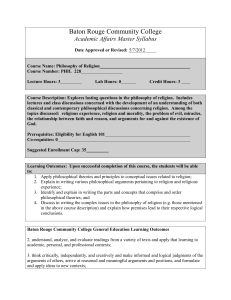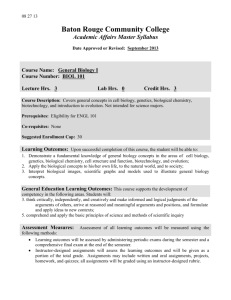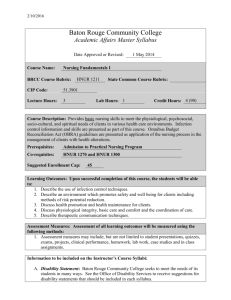CNET 250
advertisement
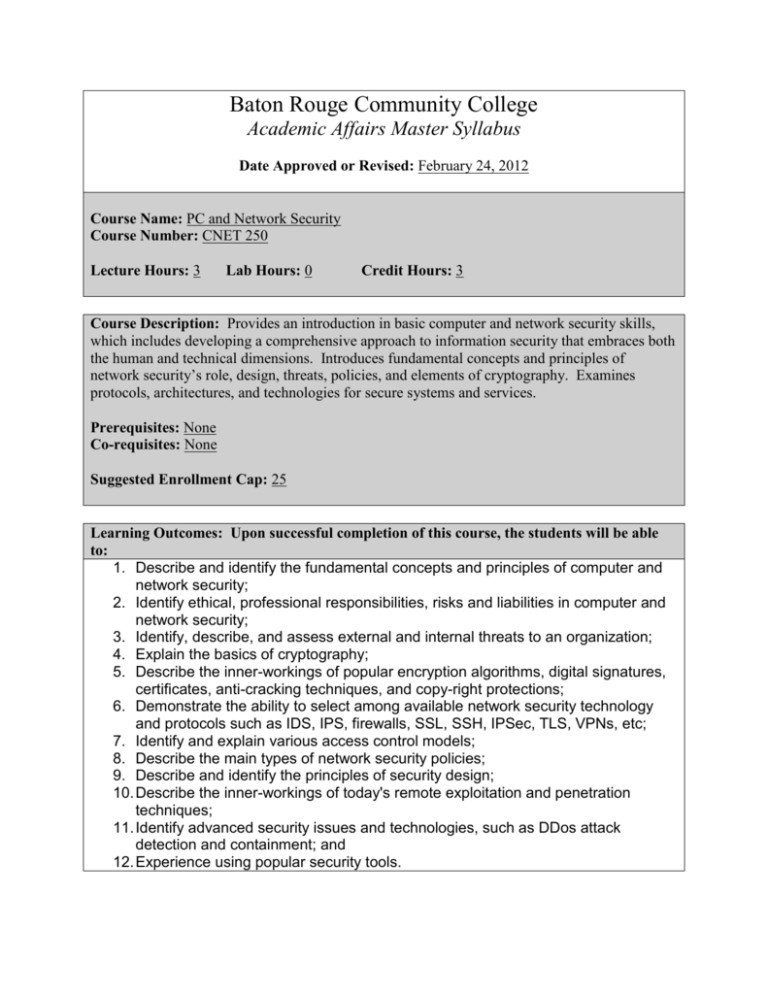
Baton Rouge Community College Academic Affairs Master Syllabus Date Approved or Revised: February 24, 2012 Course Name: PC and Network Security Course Number: CNET 250 Lecture Hours: 3 Lab Hours: 0 Credit Hours: 3 Course Description: Provides an introduction in basic computer and network security skills, which includes developing a comprehensive approach to information security that embraces both the human and technical dimensions. Introduces fundamental concepts and principles of network security’s role, design, threats, policies, and elements of cryptography. Examines protocols, architectures, and technologies for secure systems and services. Prerequisites: None Co-requisites: None Suggested Enrollment Cap: 25 Learning Outcomes: Upon successful completion of this course, the students will be able to: 1. Describe and identify the fundamental concepts and principles of computer and network security; 2. Identify ethical, professional responsibilities, risks and liabilities in computer and network security; 3. Identify, describe, and assess external and internal threats to an organization; 4. Explain the basics of cryptography; 5. Describe the inner-workings of popular encryption algorithms, digital signatures, certificates, anti-cracking techniques, and copy-right protections; 6. Demonstrate the ability to select among available network security technology and protocols such as IDS, IPS, firewalls, SSL, SSH, IPSec, TLS, VPNs, etc; 7. Identify and explain various access control models; 8. Describe the main types of network security policies; 9. Describe and identify the principles of security design; 10. Describe the inner-workings of today's remote exploitation and penetration techniques; 11. Identify advanced security issues and technologies, such as DDos attack detection and containment; and 12. Experience using popular security tools. Assessment Measures: Assessment of all learning outcomes will be measured using the following methods: 1. Structured use of class time 2. Instructor-prepared tests 3. Individual/Group Projects 4. Homework Assignments Information to be included on the Instructor’s Course Syllabi: Disability Statement: Baton Rouge Community College seeks to meet the needs of its students in many ways. See the Office of Disability Services to receive suggestions for disability statements that should be included in each syllabus. Grading: The College grading policy should be included in the course syllabus. Any special practices should also go here. This should include the instructor’s and/or the department’s policy for make-up work. For example in a speech course, “Speeches not given on due date will receive no grade higher than a sixty” or “Make-up work will not be accepted after the last day of class.” Attendance Policy: Include the overall attendance policy of the college. Instructors may want to add additional information in individual syllabi to meet the needs of their courses. General Policies: Instructors’ policy on the use of things such as beepers and cell phones and/or hand held programmable calculators should be covered in this section. Cheating and Plagiarism: This must be included in all syllabi and should include the penalties for incidents in a given class. Students should have a clear idea of what constitutes cheating in a given course. Safety Concerns: In some programs this may be a major issue. For example, “No student will be allowed in the safety lab without safety glasses.” General statements such as, “Items that may be harmful to one’s self or others should not be brought to class.” Library/ Learning Resources: Since the development of the total person is part of our mission, assignments in the library and/or the Learning Resources Center should be included to assist students in enhancing skills and in using resources. Students should be encouraged to use the library for reading enjoyment as part of lifelong learning. Expanded Course Outline: I. Basic Computer and Network Security Concepts and Principles II. Legal and Privacy Issues III. Internal Threats – Employees, Contractors, Third parties IV. External Threats – Criminals, Corporate Espionage, Hackers, Cyber Warfare, Cyber Terrorism V. Cryptography VI. Secure Network Protocols VII. Access Control Models VIII. Network Security Policies IX. Principles of Design X. Social Engineering XI. Malware and viruses XII. Denial of Service Attacks and Defense XIII. Penetration Testing, Vulnerability Scanning, and Security Auditing



